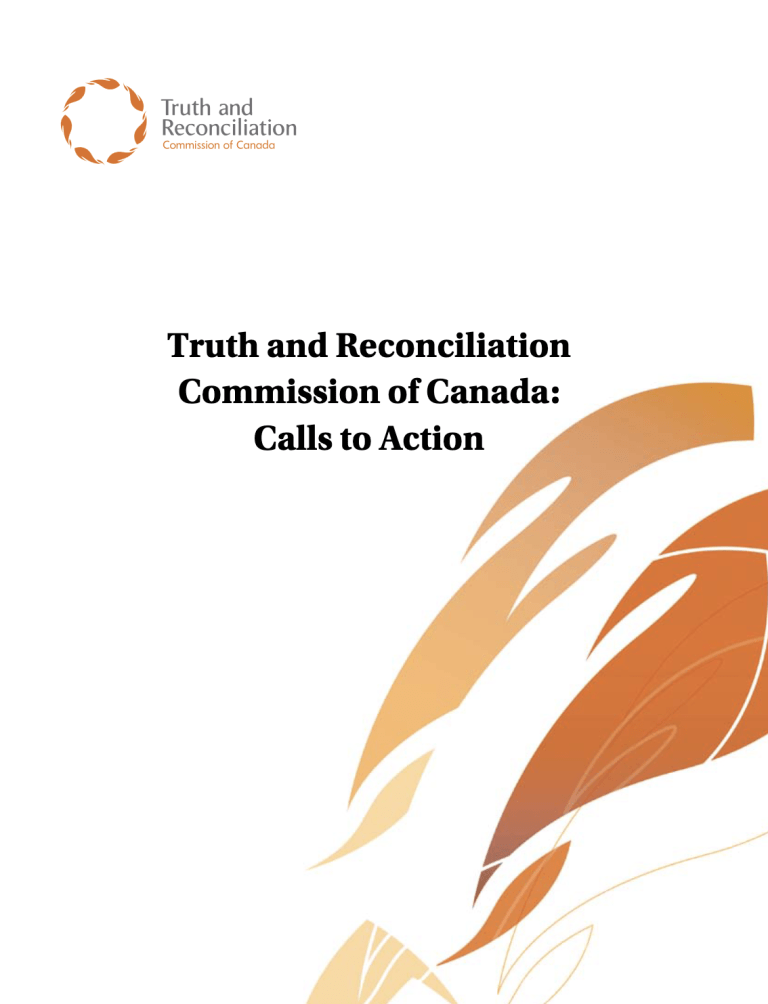33 search results
for
Government of British Columbia
Reconciliation
Equity for Aboriginal people in the legal system
Recommendation 52: We call upon the Government of Canada, provincial and territorial governments, and the courts to adopt the following legal principles:- Aboriginal title claims are accepted once the Aboriginal claimant has established occupation over a particular territory at a particular point in time.
- Once Aboriginal title has been established, the burden of proving any limitation on any rights arising from the existence of that title shifts to the party asserting such a limitation.
-
Category and theme:
Audience:
Groups affected:
Reconciliation
National Council for Reconciliation
Recommendation 55: We call upon all levels of government to provide annual reports or any current data requested by the National Council for Reconciliation so that it can report on the progress towards reconciliation. The reports or data would include, but not be limited to:- The number of Aboriginal children—including Métis and Inuit children—in care, compared with non-Aboriginal children, the reasons for apprehension, and the total spending on preventive and care services by child-welfare agencies.
- Comparative funding for the education of First Nations children on and off reserves.
- The educational and income attainments of Aboriginal peoples in Canada compared with non-Aboriginal people.
- Progress on closing the gaps between Aboriginal and non-Aboriginal communities in a number of health indicators such as: infant mortality, maternal health, suicide, mental health, addictions, life expectancy, birth rates, infant and child health issues, chronic diseases, illness and injury incidence, and the availability of appropriate health services.
- Progress on eliminating the overrepresentation of Aboriginal children in youth custody over the next decade.
- Progress on reducing the rate of criminal victimization of Aboriginal people, including data related to homicide and family violence victimization and other crimes.
- Progress on reducing the overrepresentation of Aboriginal people in the justice and correctional systems.
-
Category and theme:
Audience:
Reconciliation
Professional development and training for public servants
Recommendation 57: We call upon federal, provincial, territorial, and municipal governments to provide education to public servants on the history of Aboriginal peoples, including the history and legacy of residential schools, the United Nations Declaration on the Rights of Indigenous Peoples, Treaties and Aboriginal rights, Indigenous law, and Aboriginal–Crown relations. This will require skills based training in intercultural competency, conflict resolution, human rights, and anti-racism.-
Category and theme:
Audience:
Groups affected:
Reconciliation
Education for reconciliation
Recommendation 62: We call upon the federal, provincial, and territorial governments, in consultation and collaboration with Survivors, Aboriginal peoples, and educators, to:- Make age-appropriate curriculum on residential schools, Treaties, and Aboriginal peoples’ historical and contemporary contributions to Canada a mandatory education requirement for Kindergarten to Grade Twelve students.
- Provide the necessary funding to post-secondary institutions to educate teachers on how to integrate Indigenous knowledge and teaching methods into classrooms.
- Provide the necessary funding to Aboriginal schools to utilize Indigenous knowledge and teaching methods in classrooms.
- Establish senior-level positions in government at the assistant deputy minister level or higher dedicated to Aboriginal content in education.
-
Category and theme:
Audience:
Groups affected:
Reconciliation
Education for reconciliation
Recommendation 64: We call upon all levels of government that provide public funds to denominational schools to require such schools to provide an education on comparative religious studies, which must include a segment on Aboriginal spiritual beliefs and practices developed in collaboration with Aboriginal Elders.-
Category and theme:
Audience:
Groups affected:
Reconciliation
Missing children and burial information
Recommendation 75: We call upon the federal government to work with provincial, territorial, and municipal governments, churches, Aboriginal communities, former residential school students, and current landowners to develop and implement strategies and procedures for the ongoing identification, documentation, maintenance, commemoration, and protection of residential school cemeteries or other sites at which residential school children were buried. This is to include the provision of We call upon the federal government to work with provincial, territorial, and municipal governments, churches, Aboriginal communities, former residential school students, and current landowners to develop and implement strategies and procedures for the ongoing identification, documentation, maintenance, commemoration, and protection of residential school cemeteries or other sites at which residential school children were buried. This is to include the provision of appropriate memorial ceremonies and commemorative markers to honour the deceased children.-
Category and theme:
Audience:
Groups affected:
Reconciliation
National Centre for Truth and Reconciliation
Recommendation 77: We call upon provincial, territorial, municipal, and community archives to work collaboratively with the National Centre for Truth and Reconciliation to identify and collect copies of all records relevant to the history and legacy of the residential school system, and to provide these to the National Centre for Truth and Reconciliation.-
Category and theme:
Audience:
Groups affected:
Reconciliation
Commemoration
Recommendation 82: We call upon provincial and territorial governments, in collaboration with Survivors and their organizations, and other parties to the Settlement Agreement, to commission and install a publicly accessible, highly visible, Residential Schools Monument in each capital city to honour Survivors and all the children who were lost to their families and communities.-
Category and theme:
Audience:
Groups affected:
Reconciliation
Sports and reconciliation
Recommendation 87: We call upon all levels of government, in collaboration with Aboriginal peoples, sports halls of fame, and other relevant organizations, to provide public education that tells the national story of Aboriginal athletes in history.-
Category and theme:
Audience:
Groups affected:
Reconciliation
Sports and reconciliation
Recommendation 88: We call upon all levels of government to take action to ensure long-term Aboriginal athlete development and growth, and continued support for the North American Indigenous Games, including funding to host the games and for provincial and territorial team preparation and travel.-
Category and theme:
Audience:
Groups affected:
